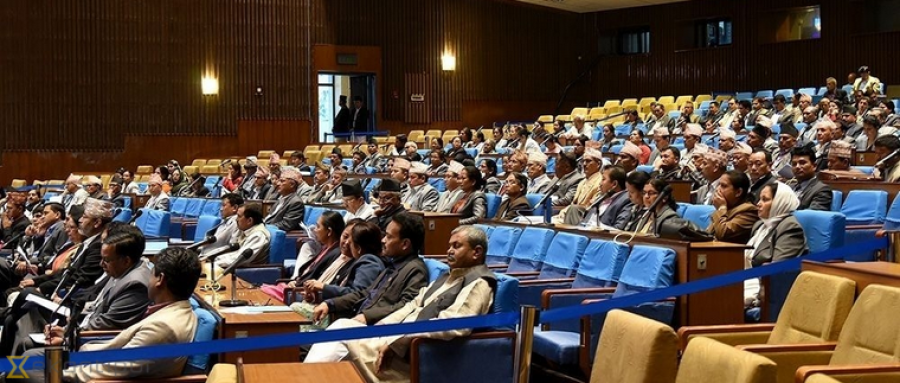National
Upcoming budget should focus on job creation and agriculture and health sectors, lawmakers say
At pre-budget discussions, parliamentarians ask government to be realistic and not to be ambitious in the wake of the Covid-19 pandemic.
Post Report
Cross-party lawmakers have demanded that the government prioritise four sectors—employment generation, agriculture, health and the education—in the national budget for the upcoming fiscal year.
Taking part in the pre-budget discussion in the federal parliament on Monday, lawmakers said that as the Covid-19 pandemic is taking away jobs from thousands of Nepalis within the country and in different labour destinations, the primary focus of the new budget should be creating jobs.
The lawmakers also called on the government to hold adequate discussions within the House and outside before presenting the budget.
Finance Minister Yubaraj Khatiwada will present the budget for fiscal year 2020-21 in the Parliament on May 28.
Lawmakers from both sides of the aisle had a unanimous view that the government should not set ambitious targets and be realistic in its budget focusing on resolving the problems created by the pandemic.
Nepali Congress lawmaker Minendra Rijal said that thousands of youths who are in different countries as migrant workers, along with those inside the country, are losing their jobs.
“Therefore, creating jobs for them should be the topmost priority,” said Rijal.
The government does not have exact data of how many Nepalis are currently employed abroad, but estimates suggest the number could be in millions.
According to the Migration in Nepal report, there are over 1.5 million Nepali youths in Malaysia, Qatar, Saudi Arabia, the United Arab Emirates and Kuwait alone. Similarly, an estimated 3 to 4 million people are employed in India.
The economic slowdown in these countries has already hit the job market hard. For instance, around 3,500 Nepali workers have registered to return home from Kuwait alone.
“Migrant workers’ losing their jobs will mean a drop in remittance inflow which will lead to decline in the import and affect our revenue generation,” said Rijal. “I urge the government to be realistic while preparing the budget.”
Parliamentarians also said that despite agriculture accounting for one third of the country’s economy, the sector still continues to be neglected.
“The country now needs to move forward from subsistence farming,” said Janaradan Sharma, a lawmaker from the ruling Nepal Communist Party. “The agriculture sector has a huge potential, however, every year we are spending billions in importing agricultural products.”
Sharma said the government should focus on ways to absorb the workforce, including especially those who have lost their jobs to the pandemic, in the agriculture sector
He demanded that the government allocate at least 10 percent of the national budget for the agriculture sector. The agriculture sector has currently 5 percent of the national budget, worth Rs1.53 trillion, allocated for it.
Sharma also called for empowering the local governments so that they can implement various projects more effectively.
“The federal government must come up with programmes to engage the poor and the labour class,” said Sharma.
Similarly, Onsari Gharti, also a ruling party lawmaker, said the government should spend more to upgrade the country’s healthcare system.
“The pandemic came as a lesson to us that our healthcare system is fragile,” said Gharti. “I ask the government to allocate needed funds to upgrade our hospitals and health centres and ensure that they have needed health professionals.”
She also called for investing more to develop infrastructure for online studies.
The pre-budget discussion will conclude on Tuesday and President Bidya Devi Bhandari will present the government's policies and programme on Friday.




 20.12°C Kathmandu
20.12°C Kathmandu













